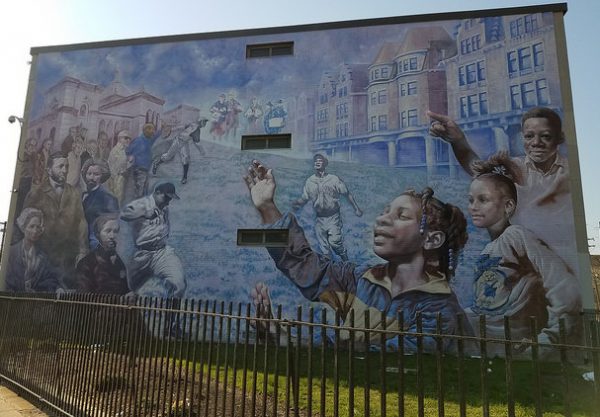
In honor of Black History Month, we at TSP hope to spark a larger conversation about the oft-understated role of black sociologists in advancing the field itself. One such figure is W.E.B DuBois. His is a name that Americans may recognize as an iconic black intellectual, but did you know he was a sociologist? In a career spanning several decades from the late 19th to the early 20th centuries, DuBois pioneered sociological methods and theory; several of his works remain classics in the field.
W.E.B. DuBois was one of the first social scientists in the West to insist that racial inequalities were not inherently due to shortcomings of minority peoples themselves. One of his earliest works, The Philadelphia Negro (1899) focuses on structural inequality for African-Americans in Philadelphia and used an innovative “mixed-methods” design to make this case. The Souls of Black Folk (1903) foregrounds individuals’ beliefs, cultural experiences, and lived realities and explored how people live with and within inequality. The Gift of Black Folk (1924) chronicles the contributions of people of color within the early foundations of the United States, including cultural and artistic projects, mechanical inventions, and blacks’ key roles in early exploration and agriculture. Black Reconstruction in America (1935) shows how freed black communities after the Civil War overcame violence and segregation to make great cultural, political, and social strides.
Though DuBois is well-known as a black intellectual, his pioneering influence has only been recognized in the field of sociology relatively recently. DuBois was often undervalued by his contemporaries, and his work was frequently misaligned and overlooked because of his race. Today, however, his influence and pioneering methods are finally being honored. This can be attributed to efforts by scholars today who have pointed to the groundbreaking academic contributions of not only DuBois, but other black scholars, both men and women, whose work was ahead of its time.
- Marcus Anthony Hunter. 2015. “W.E.B. Du Bois and Black Heterogeneity: How The Philadelphia Negro Shaped American Sociology.” The American Sociologist 46(2): 219-233
- Aldon Morris. 2017. The Scholar Denied. University of California Press.
- Earl Wright II. 2015. The First American School of Sociology: W. E. B. Du Bois and the Atlanta Sociological Laboratory. Routledge.

Comments